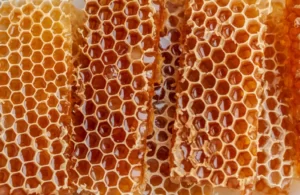Table of Contents
Introduction
Manuka honey has been revered for its numerous health benefits since ancient times. The ancient Greeks and Romans recognized its potential, and modern research has confirmed its therapeutic properties. While honey is technically a sugar, it is also rich in various bioactive substances that contribute to its health-promoting qualities. In this article, we will explore the benefits of manuka honey, a unique type of honey known for its antibacterial properties, for depression.
The Different Types of Honey
There are four common types of honey, each with its own characteristics and production methods:
-
Raw Honey: Raw honey is obtained from the beehive without adding heat. It retains all the natural enzymes, minerals, and antioxidants present in the honeycomb.
-
Manuka Honey: Manuka honey is produced from the flowers of manuka trees. It is renowned for its antibacterial properties, which can be attributed to a compound called methylglyoxal.
-
Organic Honey: Organic honey is produced without the use of synthetic chemicals, pesticides, or GMOs. It is a healthier alternative to conventionally produced honey.
-
Local Honey: Local honey is sourced from bees that collect nectar from local flowers. Some people claim that consuming local honey can provide relief from seasonal allergies, although scientific evidence supporting this claim is limited.
Using Honey as a Sugar Substitute
Honey can be used as a natural substitute for sugar in various recipes. However, there are a few things to consider when using honey as a sweetener:
- Flavor: Honey has a distinctive flavor that varies depending on the source flowers. This unique taste can add depth to your recipes.
- Sweetness: Honey is sweeter than sugar, so you’ll need to adjust the amount used. A general rule of thumb is to use ¾ to 1 cup of honey for every 1 cup of sugar.
- Consistency: Honey is a liquid, so you may need to reduce other liquid ingredients or slightly increase the dry ingredients in your recipe to maintain the desired consistency.
- Browning: Honey tends to brown more quickly than sugar, so it’s advisable to reduce the oven temperature by 25°F when using honey in baked goods.
The Health Benefits of Manuka Honey for Depression
While honey, in general, offers several health benefits, manuka honey, in particular, has been studied for its potential effects on depression. The keyphrase “manuka honey for depression” is an important focus for this article.
1. Anti-Inflammatory Properties
Chronic inflammation has been linked to the development and progression of depression. Manuka honey contains bioactive compounds that exhibit anti-inflammatory effects, which may help reduce inflammation in the body and potentially alleviate depressive symptoms.
2. Antioxidant Activity
Oxidative stress, caused by an imbalance between antioxidants and harmful free radicals, can contribute to the onset of depression. Manuka honey is rich in antioxidants, such as phenolic compounds and flavonoids, which can neutralize free radicals and protect against oxidative damage.
3. Neuroprotective Effects
Depression is associated with alterations in brain structure and function. Manuka honey has been shown to possess neuroprotective properties, protecting against neurological damage and promoting brain health. These effects may contribute to the alleviation of depressive symptoms.
4. Antibacterial Properties
Depression has been linked to inflammation and immune system dysfunction. Manuka honey’s unique antibacterial properties, attributed to its methylglyoxal content, can help combat harmful bacteria and support a healthy immune system. By reducing bacterial load and inflammation, manuka honey may indirectly improve depressive symptoms.
5. Digestive Health Benefits
Emerging research suggests a strong connection between gut health and mental well-being, including depression. Manuka honey has prebiotic properties, meaning it promotes the growth of beneficial gut bacteria. By supporting a healthy gut microbiome, manuka honey may positively influence mood and mental health.
6. Natural Energy Boost
Depression often leads to fatigue and decreased energy levels. Manuka honey is a natural source of carbohydrates, providing a quick and sustained energy boost. Consuming manuka honey can help combat fatigue and improve overall vitality, potentially alleviating some depressive symptoms.
In conclusion, manuka honey offers numerous potential benefits for individuals experiencing depression. Its anti-inflammatory, antioxidant, neuroprotective, antibacterial, digestive health, and energy-boosting properties make it a valuable addition to a holistic approach to managing depression. However, it is important to note that manuka honey should not replace professional medical advice or treatment for depression.



